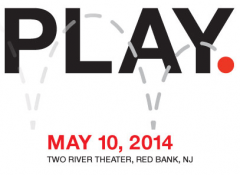Education
Is Psychology Missing the Play Revolution?
Play researchers are unearthing the secrets to human learning and development.
Posted June 22, 2014
What do gardening, spoken word, video games, engineering, running, making beer, talking to strangers, going to the theatre, fixing bikes, dealing with trauma, and drumming have in common?
All were topics at TEDxNavesink-PLAY, a day-long event at the Two River Theater in Red Bank, New Jersey on May 10 2014. Yes, play. In all, there were two dozen presentations organized to highlight four features of play: its possibility, pleasure, progress and paradox. I was so pleased to be invited to share my own work and spend the day learning how others play and think about play.
For me—a developmental psychologist concerned with the power of play throughout the life span—this was a conference-goer’s dream. I go to lots of psychology, therapy and education conferences and if there’s a presentation on play it’s usually mine. I do what I can to help psychology become more open and innovative. There is an emerging “play revolution” taking place and I don’t want it to pass psychology by. But as an institution and discipline, psychology is so self-referential and myopic that it remains to be seen if it can look outside itself.
Peter Gray spoke on the decline of play and the rise of mental disorders. Karl Kapp showed the positive side of video games. Pat Rumbaugh shared how to organize unorganized play in communities. Robyn Stratton-Berkessel gave us a simple conversational tool to create playful inquiry anywhere and make human connection.
These and other presentations illustrated one of the themes of my own talk, “Play Helps Us Grow at Any Age.” That play isn’t just fun. It’s not just fantasy. It’s not just a great stress reliever. It’s not even just how little children rehearse the social roles they’ll take on as they older. Playing the way babies do is how they become, grow, develop, transform.
When babies and their caregivers play, they
1. go beyond themselves by doing things without knowing how (for example, they carry on conversations even though the baby don’t yet know how to speak)
2. relate to not only as who the baby is right then, but also as who s/he is becoming (for example, a speaker)— at the very same time
3. take what exists and create something new (for example, taking the baby’s babbles and the adults’ words and creating a new language user).
This kind of play (I call it revolutionary play because it qualitatively changes what “is”) is something that all of us, at any age, can model. But most of us stop. We’re taught there’s a difference between work and play—and that work is what matters. That there’s a difference between learning and playing—and that learning is what matters. We’re told constantly who we are —and that limits who we can become. We focus on getting it right and looking good—and that stops us from developing. Without revolutionary play, we get stuck. Individuals get stuck. Families get stuck. Communities get stuck. Indeed, the whole world appears stuck in old roles, stale performances, and destructive games.
I’ve learned from my own research and that of others that to get unstuck, people have to create environments that support revolutionary play, that allow us to relate to people not just as they are, but as other, as beyond, as becoming. In my talk, I presented stories of people in different parts of the world doing just this—playing. And playing with things you wouldn’t think you could play with because they are too painful, like nurses with sickness and death, teachers with the trauma of natural disasters, and police officers and inner-city youth with the hostility between them.

Open yourself up to play. Watch the videos!


